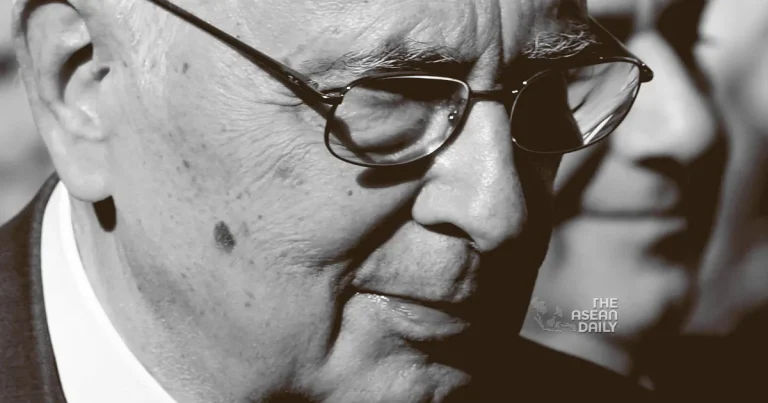23-9-2023 (ROME) Giorgio Napolitano, a pivotal figure in Italian politics and a former president of Italy, has passed away at the age of 98, according to an official statement from the Prime Minister’s office on Friday, September 22.
Napolitano, once a committed communist, played a substantial role in navigating Italy through the turbulent waters of a debt crisis in 2011, thereby leaving an indelible mark on the nation’s political landscape.
During his tenure, Napolitano forged an extraordinary bond with the late Pope Benedict XVI. Their friendship was so profound that Napolitano was among the select few individuals privy to Benedict’s abrupt resignation announcement in February 2013.
Prime Minister Giorgia Meloni’s office conveyed the heartfelt condolences of the Italian government to Napolitano’s bereaved family.
The Italian presidency, while largely ceremonial, gained substantial prominence under Napolitano’s watch. In a remarkable display of political acumen, Napolitano harnessed his presidential powers in late 2011 to avert an impending crisis. He appointed the former European Commission technocrat, Mario Monti, to lead the government in the aftermath of Prime Minister Silvio Berlusconi’s resignation, stemming from a heated dispute over proposed spending cuts.
Two years later, Napolitano once again demonstrated his statesmanship by brokering an agreement to install a grand coalition government led by the centre-left politician, Enrico Letta. This move was necessitated by the inconclusive results of a parliamentary election, and Napolitano’s deft political maneuvering was instrumental in stabilizing the situation.
Giorgio Napolitano assumed the presidency in 2006 and went on to be re-elected for an unprecedented second seven-year term in 2013. In 2015, he made the decision to step down from his illustrious position, citing the constraints of his advancing age.
His remarkable political career, which commenced in the early 1950s, saw him ascend to positions of significant influence. Napolitano served as a member of both the Italian and European parliaments, as well as taking on roles such as interior minister and speaker of the lower house of parliament, cementing his legacy as a stalwart of Italian politics.




